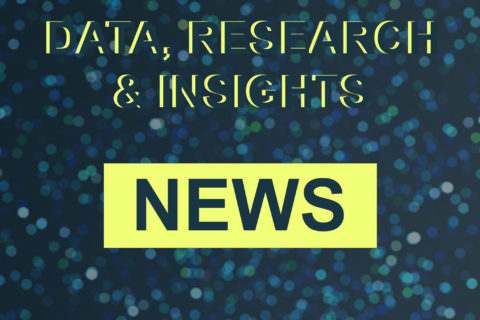By Julie Aebersold
On the evening of 14th June, data, research and insight professionals gathered to discuss the challenges and opportunities that are leading us into the future of market research. It’s true; there are a lot of scary things on the horizon that will certainly impact our industry. Within this uncertainty, we must ask ourselves, will we grab technology by the horns like Uber or will we fail to innovate like London black cabs?
I’d like to believe the MR industry is slowly, but surely, gripping technology. There are many companies putting automation and AI to the test and taking risks to deliver the insight clients want better, faster and cheaper. But as Danny Russell of DRC pointed out, we’d better abide by the law if we’re acting like Ubers if we want to avoid a headline like this ‘Uber board member resigns after sexist remark.’
This is where the first presentation of the night disclosed its importance. As an industry that works closely with people and their data, we need to make sure we’re following the law. Debrah Harding of the MRS presented the five hot topics affecting the UK. First up was (and you probably guessed it) Brexit. 63% of UK businesses are worried about retaining EU staff, but 73% report it has yet to have any effect. Next, there’s GDPR, which comes into force May 2018 (before Brexit). So if you process data about European citizens, you need to be aware of this. Debrah continued on with procurement, slavery, bribery and corruption, and diversity – insisting that every organisation must be on top of all five hot topics. Diversity was an interesting one, because looking around the room you could see a strong female/male balance, but this is not the case when it comes to pay and seniority. Don’t overlook the things you can’t see.
Next, Danny Russell of Danny Russell Consulting discussed the changes and challenges on the horizon for our industry. The industry is changing and to keep up we need to act like Uber, but what exactly was it that made Uber such a blazing success? The idea came from seeing a need from the customer’s perspective rather than the company’s. It was about getting the customer from A to B as quick as possible, not about how many cars they should have. Uber is also technology based and disruptive (a term that may be overused at this point, but they truly are). It’s truly an adapt or die situation, and MR companies need to be better, faster and cheaper to survive. Unfortunately our industry is facing several challenges behind this including client responsiveness, costs, and opening up to new methods.
Simon Carter of ComRes made his way onto the stage next to look specifically at the change and challenges when moving roles from client side to agency. The perspectives are very different so you can expect to need different things from one another. A client wants someone who understands their customers’ needs before they do to forecast the future. They need someone who understands the implications from the insight. On the other hand, consultancies want clients to keep to the timetable, be realistic within project expectations, and to pay! Another difference Simon pointed out when moving to a consultancy (apart from working with predominately millennials) is the speed of decision making. But overall, the future is not about data tables; it’s about analysing that data and using experiences to formulate the insight. Clients want to know the benefits and the purpose of the research.
The final insight for the night came from a panel of three client-side researchers – Tim Hulbert of Barclays, Georgina White of Centrica, and David Torres of Nestle UK – chaired by Martin Dewhurst of Hall & Partners. The panelists described success in this changing environment. It’s about the big picture – robots can do the small things while researchers are given the time to think about the big picture. One thing that will never change is the goal of insight, which will always be representing the voice of the customer to drive business decisions. It’s the researcher’s job to put the VOC into an emotional story and deliver actionable insight to the right people at the right time. It’s not just about a bag of data, you need a point of view to go with it. Don’t rock back and forth and suggest multiple directions. And to form an opinion, you need to first understand the client’s needs and put in effort to understand the business.
Overall it seems to me like the future of a successful industry falls back on the researcher, not the robot. It’s about delivering a story with emotion, forming a strong opinion, and understanding the client’s needs. These are all human traits. Looks like the robots are just there to speed up the process, enhance the technology, and give researchers the time to see the big picture and optimise the insight.
By Julie Aebersold, Keen as Mustard Marketing



1 comment
Disappointing article on uberisation of research – not insightful. Expected more.